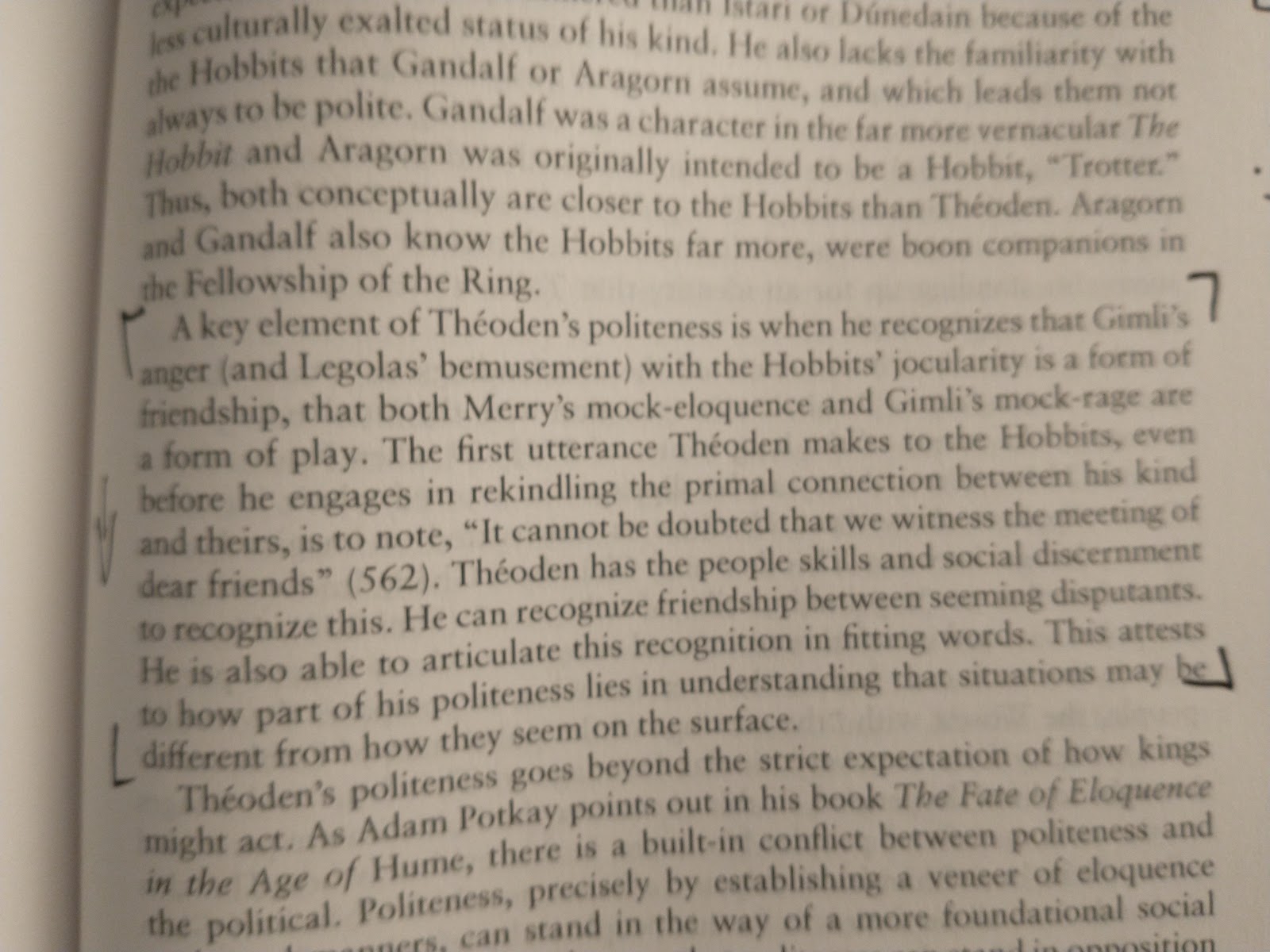Recently I saw someone somewhere inline asking about Gandalf's characterization of Gollum in The Shadow of the Past.
The most inquisitive and curious-minded of that family was called Sméagol. He was interested in roots and beginnings; he dived into deep pools; he burrowed under trees and growing plants; he tunnelled into green mounds; and he ceased to look up at the hill-tops, or the leaves on trees, or the flowers opening in the air: his head and his eyes were downward.
(FR 1.ii.53)
The poster wanted to know what was so wrong about his not looking up but down. The characterization starts off well enough, but it begins to feel like something has gone wrong when it reaches "and he ceased ... air." And the last phrase, singled out and pointed to by the colon, reads like a final verdict in a capital case. So why is downward bad?
It's part of an old notion that looking up, whether to the heavens or to heaven, is something that distinguishes humans from animals. Off the top of my head I am unsure where it started, but it can be found in Plato and Aristotle. Tolkien was certainly familiar with Plato's Timaeus, which along with the Critias, speaks of Atlantis, and helped inspire Númenor. The description from The Shadow of the Past quoted above makes me think that Tolkien would have more likely been drawing on Boethius' The Consolation of Philosophy, an exceptionally important work in the Middle Ages in Europe. There is even a translation of it into Old English, which has been attributed to Alfred the Great. It probably wasn't really translated by Alfred himself, however, and it's really more of a reboot than a straighforward translation. Tolkien certainly knew both of these works, each of which contains at a similar moment in its fifth book a poem on this difference between humans and animals. First take a look at my translation of a Latin poem from the fifth book of The Consolation of Philosophy. I include the original after that. I've also tried to keep the translation close to the original, line for line, more or less, if not word for word. It's not, however, a literal translation, and I have not tried putting it into verse.
Quam uariis terras animalia permeant figuris!
Namque alia extento sunt corpore pulueremque uerrunt
Continuumque trahunt ui pectoris incitata sulcum,
Sunt quibus alarum leuitas uaga uerberetque uentos
Et liquido longi spatia aetheris enatet uolatu,
Haec pressisse solo uestigia gressibusque gaudent
Vel uirides campos transmittere uel subire siluas.
Quae uariis uideas licet omnia discrepare formis,
Prona tamen facies hebetes ualet ingrauare sensus.
Vnica gens hominum celsum leuat altius cacumen
Atque leuis recto stat corpore despicitque terras.
Haec nisi terrenus male desipis, admonet figura,
Qui recto caelum uultu petis exserisque frontem,
In sublime feras animum quoque, ne grauata pessum
Inferior sidat mens corpore celsius leuato.
inclines to the ground, bends its head down,
Hwæt ðu meaht ongitan, gif his ðe geman lyst,
Þætte mislice manega wuhta
geond eorðan farað ungelice.
Habbað blioh and fær bu ungelice
and mæg-wlitas manega cynna
cuð and uncuð. Creopað and snicað,
eall lichoma eorðan getenge;
nabbað hi æt fiðrum fultum, ne magon hi mid fotum gangan,
Eorð brucan, swa him eaden wæs.
Sume fotum twam foldan peððað,
Sume fierfete, sume fleogende
windað under wolcnum. Bið ðeah wuhta gehwylc
onhnigen to hrusan, hnipað ofdune,
on weoruld wliteð, wilnað to eorðan,
sume nedþearfe, sume neodfræce.
Man ana gæð metodes gesceafta
Mid his andwlitan up on gerihte.
Mid ðy is getacnod þæt his treowa sceal
and his modgeþonc ma up þonne niðer
habban to heofonum, þy læs he his hige wende
niðer swa ðær nyten. Nis þæt gedafenlic
þaet se modsefa monna æniges
